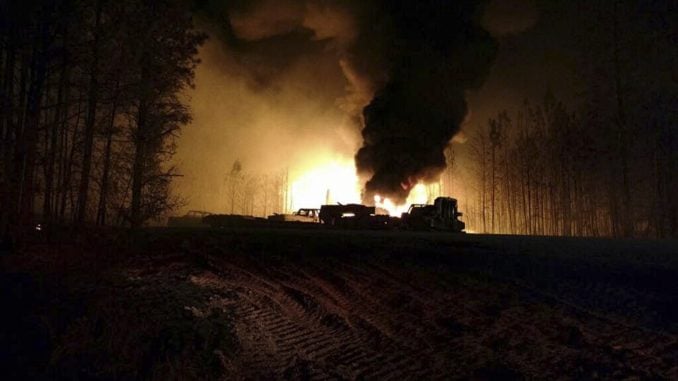
RALEIGH While most of the state is thinking about elections, the Colonial Pipeline explosion earlier in the week has fleets of gasoline tankers pulling into N.C. Gasoline prices at the pump in some southeastern U.S. states inched up on Wednesday, with N.C., S.C. and Tennessee showing a small increase as a result of the explosion. Georgia has had the highest increase so far, up three cents per gallon as of Wednesday.Gov. Pat McCrory and the North Carolina Department of Agriculture are working to head off any state supply disruptions from the explosion by bringing in gasoline by truck to make deliveries across the state beginning today. Monday’s blast, which killed one worker and injured five others, occurred several miles from Colonial’s September gasoline spill, the largest in nearly two decades. The spill caused a 12-day interruption of fuel flow from a refining hub on the Gulf Coast to the Northeast, the source of about 1.3 million barrels per day.”I am continuing to work with our emergency management team to closely monitor the situation in Alabama,” said Gov. McCrory. “I will continue to take every measure that is needed to minimize the impact of this disruption on North Carolina.”Earlier in the week McCrory signed an executive order intended to ease regulations on deliveries to local gas stations by waiving some state transportation requirements. An additional waiver approved by the state agriculture department to allow tanker trucks from outside the state to move more gasoline supplies into North Carolina.”This waiver will allow for an increase in our gas supply that should not affect the quality or safety of fuel,” said Agriculture Commissioner Steve Troxler. “Gasoline products from northern states, which previously could not be sold in our state, can now be used at our pumps. What we are allowing is our winter fuel supply, which has different vapor pressure and normally is allowed for sale beginning in December, to be sold now.”Colonial said on Tuesday it aimed to reopen the vital supply artery by Saturday, but said the timetable may change as it gets updated information from the site of the accident.”If September’s shutdown was any indicator of what we should expect, prices are definitely going to spike at the pump,” said Tiffany Wright, public relations manager for AAA Carolinas. “We saw price spikes of 20 to 30 cents in some areas and there were a ton of stations with bagged pumps due to shortages.”Gasoline futures, meanwhile, were down 1.3 percent on Wednesday after jumping as much as 15 percent on Tuesday to their highest since early June.The spill two months ago led to long gasoline lines and squeezed supply in inland states without access to alternative supplies via ship.The cause of the Colonial September spill has not been made public. The nine-member crew was working on repairs related to September’s leak when the line was struck with an excavator, setting off the explosion, according to Colonial officials.Markets on the East Coast are slightly better positioned due to access to ports. By noon on Tuesday, some 14 ships had been provisionally booked to sail from Europe to the region, more than quadrupling shipping costs, traders and ship brokers said.



